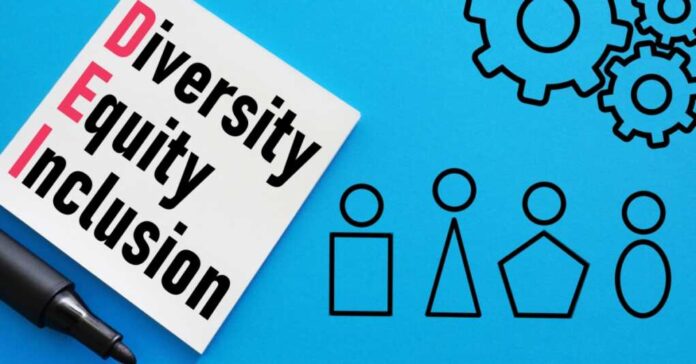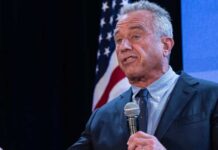
Staff at Andrews Air Force Base were given a rare treat in the last week of April– front-row seats to an improvised wrestling match between several of Vice President Kamala Harris’ secret service agents.
For Harris’ security detail, April 25, 2024, started as an ordinary morning milling around the terminal and waiting for the arrival of the VP. At around 9 am on April 25, 2024, things took a strange turn when agent Michelle Herczeg showed up for duty and almost immediately began the bizarre actions that led to her being removed from the scene handcuffed.
The incident began when Herczeg grabbed a coworker’s cell phone and deleted his applications from his device. As a shift leader for the detail, the agent reclaimed his phone and, although probably perplexed by Herczeg’s actions, dismissed the incident.
But things began to escalate, with Herczeg muttering to herself, concealing herself behind curtains, and hurling various objects, including menstrual pads, at another agent. She informed him that he would require them later to aid another agent and warned her colleagues that they were destined for damnation and needed to heed God’s message.
Herczeg then confronted the special agent in charge (SAIC), listing names of female officers from the vice president’s detail and insisting they would support her and allow her to continue her duties. By now, agents present suspected Herczeg was experiencing a mental breakdown, and the SAIC approached her to tell her she was relieved from her assignment.
But Herczeg wasn’t leaving without a fight.
She chest-bumped her supervisor, then tackled him to the ground and began pummeling him with punches. Her fellow agents, concerned that Herczeg still had her weapon, were forced to wrestle her, leading her away in handcuffs.
While it was an apparent mental break, the situation has led more than thirty USSS agents to question how she was allowed onto the elite force in the first place, drawing a line between her hiring and the agency’s cooperation with the 30×30 initiative. This initiative is a DEI effort to increase the representation of women in law enforcement to 30% by 2030.
On the surface, it seems mean-spirited to blame someone’s mental breakdown on their gender. But a closer look at Herczeg’s controversial past reveals that she should never have been hired as a USSS agent, and without DEI, she likely would not have been chosen.
While serving on the Dallas police force in 2014, Herczeg found herself part of the police-involved shooting of an individual who they suspected had stolen a vehicle. The suspect brandished a weapon at Herczeg and her partner, leading to shots fired by the officers. The suspect shot himself in the head without leaving the car, ending the stalemate. But Dallas residents were skeptical of the official report since things didn’t add up.
In 2016, Herczeg, still serving Dallas as a police officer, initiated a lawsuit against the city, alleging gender discrimination. She claimed to have been assaulted by a male superior and sought compensation exceeding $1 million in damages.
The lawsuit contended that Herczeg was singled out due to her gender and subjected to unfavorable treatment. She asserted retaliation following her reports of sexual harassment and misconduct by fellow officers. Additionally, she maintained that she was barred from rejoining a crime-reduction team after accusing a senior officer of assault. The lawsuit was dismissed by a Texas trial court, prompting Herczeg to appeal. A Texas court of appeals upheld the initial ruling.
According to Ronald Kessler, a former investigative reporter for the Washington Post known for his books on the Secret Service, the agency would typically consider the dropped discrimination lawsuit alone as a reason for disqualification, much less an “iffy” police-involved shooting.
The USSS denies any standards have been lowered to increase female representation in the agency, but former Uniformed Division officer Gary Byrne disagrees. He recalled one female agent, hired during the Clinton administration’s push for an increase in female law enforcement officers, who claimed she hadn’t even been asked to take a polygraph test during the interview process.
Following the incident at Andrews Air Force Base, the USSS called for a “DEI-focused” investigation to uncover the role of Biden’s initiatives in selecting agents. The agency argues that choosing DEI over qualifications has “created a climate” for the FBI that is, at best, placing the American public at risk and, at worst, a potential national security threat.
No one faults Herczeg for her emotional breakdown. Still, defending the Biden administration’s rabid DEI agenda is tough when a potential threat against the vice president emerged from an agent who probably should not have been on the team at all.














